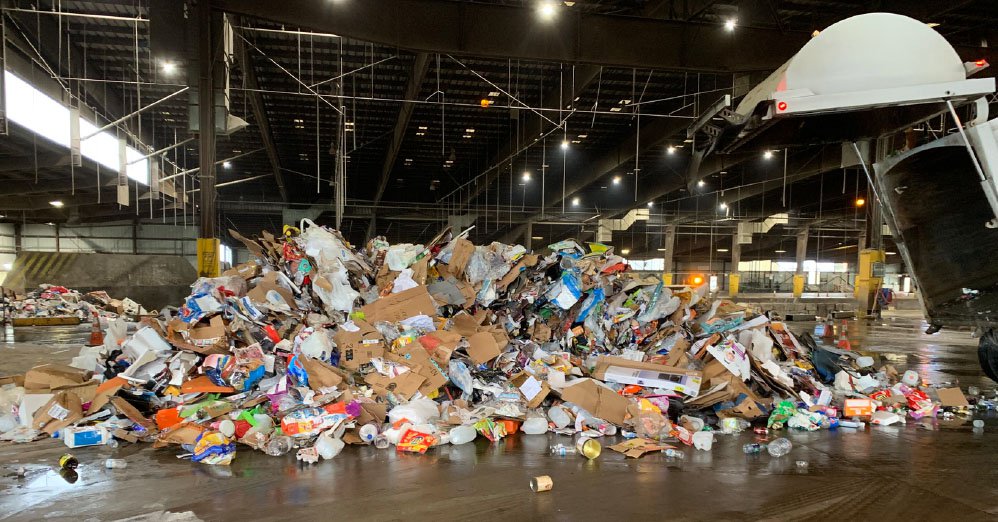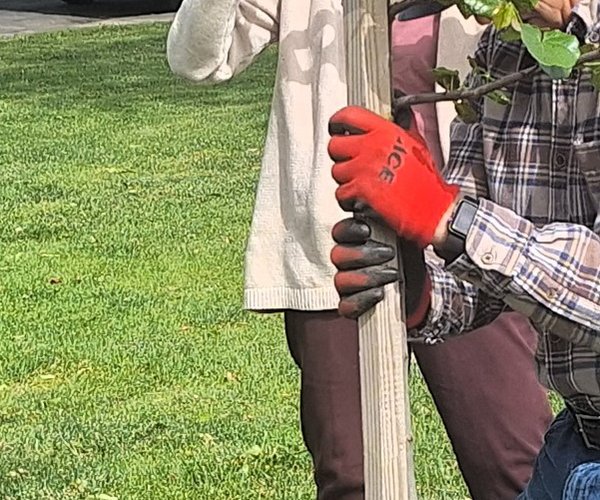Manteca’s ultimate solution for solving its recycling quandary may be the creation of its own sorting and composting facilities along with a transfer station as well as the food waste to fuel process now in place at the municipal wastewater treatment plant.
Couple that with a large solar farm that is moving forward to help power the wastewater treatment process and Manteca will have created an environmental campus where there was just a wastewater treatment plant.
If that goes forward and once it is in place, how the city recycles would likely change. At that point the green cart would include food waste as well as some paper products such as greasy pizza boxes along with yard waste. The green carts would be collected every week. The blue cart would be for cans, bottles, and clean cardboard as it is now. The blue cart would be collected once a week.
The brown cart would be for everything else and would be collected every other week. Currently brown carts based on city audit are 48 percent food waste.
That solution, though, may not happen for years due to the expense and other related issued.
But until then Manteca is taking steps that may help it avoid truckloads of items taken from the blue carts from being buried instead of recycled.
The Manteca City Council on Tuesday blessed a staff proposal to amend its contract with San Joaquin County that had given them exclusive rights to the city’s municipal waste and recyclables that was delivered to the Lovelace Transfer Station just north of Manteca. Starting next month Manteca will have the flexibility to take its recyclable collections elsewhere to companies that may be able to separate items that are still recyclable under new market realties meaning entire truckloads may not need to be buried at a cost of $52.83 per ton. The county buries any recycling truckloads that are more than 20 percent contaminated.
Manteca is requesting proposals from five companies to see if they are interested in handling Manteca’s recyclables and whether it can be done at a cost of less than $52.38 a ton when all costs including increased travel time for trucks are factored into the equation. The potential vendors are Forward Landfill on Austin Road, Tracy Material Recovery, Stockton Recycling, Cal Waste and Gilton Waste Management.
A tightening of quality standards that led many nations that have been taking United States recyclables meant that contamination levels that had been acceptable for years no longer are.
The biggest impact has been all paper products including newspapers and magazines as well as paperboard items such as cereal and shoe boxes as well as glass no longer having recycling value and having to be buried.
That said Manteca residents as a whole aren’t helping matters. A Feb. 14 audit of a truckload of 6,360 pounds collected from blue carts on a route with 490 homes reflected a contamination rate of 68.9 percent compared to 73.4 percent in a similar audit conducted in 2014. The contamination number would have been a bit lower in February as the 2014 audited tallied clean paper and paperboard and glass as recyclable.
The February audit, however, revealed a lot of items that qualify as pure garbage today and as pure garbage five years ago. Among the items found were a suitcase, baby stroller, greasy pizza boxes, soiled disposable diapers, food waste and other garbage.
Councilwoman Debby Moorhead noted sometimes it isn’t just the homeowner who is using the blue cart for garbage. She noted when a neighbor placed a blue cart that she later found out wasn’t even half filled at curbside, a short time later someone came along and filled it to the brim and then some with garbage.
“It looked like they just cleaned out their closet and dumped it into the cart (that wasn’t their cart),” Moorhead said.
City officials said that is also happening to many businesses with large bins. Even with locked bins and secured storage areas for them people not connected with the commercial account will leave large such as mattresses.
The change in the city’s recycling rules to conform to the new market realities that have made some items that had recycling value worthless for the time being means less items can go in the blue cart meaning more would need to be placed into the brown cart.
That resulted in 3,400 Manteca households switching from the medium brown carts to the large brown carts. There were also 1,600 small carts that were switched for medium carts.
The current schedule for cart collections and what can go in them isn’t likely to change any time soon.
Staff will bring back the concept of an environmental campus to the council when they develop more details.
To contact Dennis Wyatt, email dwyatt, email dwyatt@mantecabulletin.com





